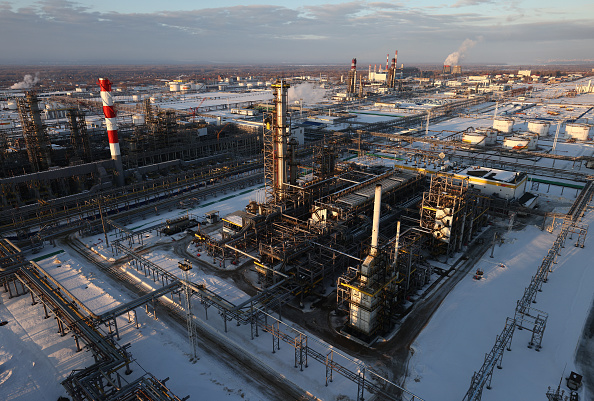Today, the word ‘Recession’ has become politically sensitive to the extent that some economists and politicians are trying to redefine it to make it lose some of its stings. The reality of a recession, however, is impossible to redefine. In Europe in particular, consumers are feeling the slowdown in economic growth in their wallets, and so are traders. There is one big difference between the two though. When a recession is looming, consumers curb spending. Traders, on the other hand, begin selling.
Also Read: Nigeria Enters “Technical Recession”, Deepest Since 1987
Reuters John Kemp reported in his latest hedge fund column that hedge funds and other institutional traders sold the equivalent of 1 million barrels of European gas oil futures over the past three weeks. While this may not sound like a lot, over the last six weeks, total sales have added up to 20 million barrels. A significant reduction in the net position of traders.
Across the Atlantic, hedge funds and money managers have been buying U.S. diesel futures and options, increasing their position by 13 million barrels over the last three weeks. Kemp suggests this is a signal that the economic outlook of U.S. traders is brighter than that of their European peers.
It might be that U.S. traders are simply looking to profit from the diesel shortage Kemp himself wrote about earlier this month. He noted that U.S. distillate fuel inventories have fallen to critical levels, and it would take a recession to remedy things by destroying demand. Otherwise, diesel prices will only continue rising and traders would buy diesel futures.
Be that as it may, the danger of recession in Europe is certainly a lot more serious from an energy perspective. Unlike the U.S., which is rather self-sufficient when it comes to natural gas, Europe has revealed itself to be as embarrassingly dependent on imports of the commodity. A dash for gas has followed, where Europe is scouring the world for friendly gas, under a spot contract, if possible. It has not always been possible.
Also Read: More Trouble For Nigeria’s Economy, As Price of Diesel Increases In Europe
As a result of this, Europe is now diverting cargoes from Asia, which is not making any friends there and trying to consume less energy. Thanks to excessive prices, it is consuming less energy. Germany is preparing for energy rationing for industrial users and encouraging household austerity. Spain is mandating air-conditioners be kept at 27 degrees or above. And Norway just announced that it would curb its electricity exports to the EU.
Norwegian electricity normally goes to the UK, Germany, the Netherlands, and Denmark. However, hydropower output, which accounts for the bulk of Norway’s total electricity output, has been low this year, and the country is trying to secure local sufficiency. More bad news for struggling Europe, where renewable power output remains uneven.
The picture is not pretty, and earlier this month, the IMF signaled it could become even worse as it advised European governments to pass on the additional energy costs to consumers to encourage energy savings. The fund argued that financial aid only keeps energy consumption high when it should be going down.
Meanwhile, Nomura analysts recently forecast that the eurozone, along with the UK, the U.S., South Korea, Australia, and Canada, are among the countries facing recession in 2023.
“Right now central banks, many of them have shifted to essentially a single mandate — and that’s to get inflation down. Monetary policy credibility is too precious an asset to lose. So they’re going to be very aggressive,” Nomura’s head of global markets research, Rob Subbaraman, said last month.
Also Read: Nigerian Markets Last Week: Oil Gains for Fourth Straight Week Ahead of OPEC+ Output Meeting
Add to this central bank aggressiveness the equally aggressive stance the EU is taking in its standoff with Russia, and there’s a recipe for recession right there.
Reuters’ Kemp predicted that at least four European economies will fall into a recession before the year’s end. Unfortunately, it’s the four largest – Germany, France, Italy, and Britain – which means the pain will be felt across the bloc and the rest of Europe, too. The silver lining: fuel prices might begin to fall once a recession settles in.

